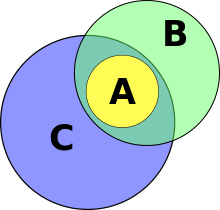 Submitted by LOGOS - Overseer on
Submitted by LOGOS - Overseer on

pixabay.com
As an astrologer and behavioral therapist, similar themes or conditions often come up in client sessions that become worthy of a post with the thought that someone else outside of my range who is having a similar issue might be assisted.
The guilt-by-association fallacy aka Argumentum Ad Hominem or what I humorously call Fallacious G works something like this:
Mr. Jones supports idea X.
Mr. Jones is known to believe in strange things.
Therefore, idea X is strange.
Further:
Anyone else who supports idea X is strange as well and generally viewed negatively because of the association.
This is obviously ridiculous because whether or not a person or group supports any idea does not mar the actual merits of the idea.
The core of this fallacy is based in the fact that simply people do not like to be associated with people they dislike (or even hate) because they personally view them as strange, stupid or evil. If successfully achieved by the hater who often launches a campaign of ‘guilt’ used to appeal to the emotions of any other person who shares an idea or belief with the ‘disliked’ person, the appealee just might be influenced into rejecting the idea, belief or even the other person because they do want to be categorized in a negative light. It does not matter what the truth or let alone the reality is for a personal assessment has been made and a judgment rendered.
A = B
A = C Therefore:
B = C? …
Let’s use a diagram for visual ease. According to Wikipedia.org and the Euler Diagram this is simply not the case.

Although A is within B and is also within C, not all of B is within C.
https://en.wikipedia.org/wiki/Association_fallacy
Fallacious G is thought to be a powerful tool by those who use it (often daily) in attempts to manipulate and control other people or situations. In the worst case scenarios of this personality disorder (food for thought for another day), threats are made and dire consequences promised. The snare of Fallacious G is resentment. The more the target person is made to resent the situation the easier it is thought to influence them. No one wants to be thought of badly via association so, often and unfortunately, the manipulation is successful. This all falls short however when being projected towards someone with what I refer to as having emotional muscle. It can also backfire most unpleasantly on the would-be manipulator (more food for thought for another day).
What I tell my clients who feel emotionally and spiritually weighted by the effects of Fallacious G is that people with emotional muscle cannot be emotionally triggered or vilified because no matter how harshly or often Fallacious G is used they don’t take any of it personally - their inner resolve is too strong. Opinions, lies and attempts to scandalize and misinform are not effective because people with emotional muscle don’t fall into the trap of resentment. They simply do not care and they do not allow the perpetrators of Fallacious G to live in their heads rent-free.
And therein lies the key –
If you want to “be” –
Allow no cerebral ‘rent free’-
Yakkity-yak …
Talk is cheap.
So is Fallacious G.
Fail.
- 1667 reads